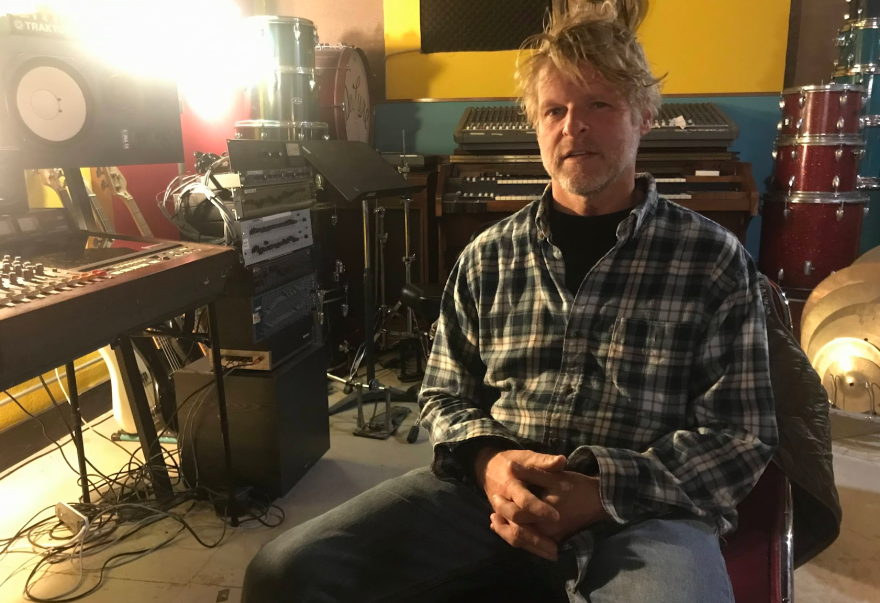Paul Edelman remembers being four or five years old and hearing Bob Dylan on the family stereo.
“I’m sitting on the couch by myself and “It’s All Right Ma, I’m Only Bleeding” is on,” Edelman recalls before rattling off a strand of the lyrics by memory.
Darkness at the break of noon
Shadows even the silver spoon
The handmade blade, the child's balloon
Eclipses both the sun and moon
To understand you know too soon
There is no sense in trying.
“It just codified my fascination and passion for music,” he said.
It’s a Monday afternoon, some five decades later, and Edelman is sitting inside a recording studio just off the main highway going into Marshall. He did some construction work here to offset recording costs of his last two records, the newest titled “Telecoaster.”
Edelman is wearing a flannel shirt and drinking from a can of Miller High Life. He fits right into the decor—stacks of dusty tube amps and snare drums, analog recording equipment and an old machine that will cut individual vinyl records in mono.
It isn’t hard connecting the dots from Edelman’s beginnings in music to his songwriting across five albums to laying down tracks in this throwback of a studio. There are obvious nods to Dylan, Springsteen, Billy Joel, even Elton John atop an underbelly of Americana.
“I’ve always had a sense of passion and earnestness about whether I was failing or succeeding and a drive to get better at it,” he said. “If you have a passion for what you’re doing, you process failure like that, you process when you’re not doing it correctly. You get better. I’ll go home and pick it apart and figure out why.”
Edelman grew up on Long Island, N.Y., and cut his first paths in music in Philadelphia.
“I would write songs and bring them to my friends in the dorms and they would laugh at me,” he said. “I’d be like, ‘OK, back to the drawing board.’”
Edelman played in bands that focused on their own music, but money was so tight that he couldn’t afford his own share of the rehearsal space. He tried forming bands around the country-folk music he was writing, but musicians wouldn’t stick around long enough to grow together. Edelman began referring to these musicians as jangling sparrows—the name he adopted for his own musical output, whether as a solo act, duo, trio or more.
Edelman had passed through Asheville while touring alone and moved for good in 2008. He hoped to trade the depression he felt in Philadelphia for Asheville’s relatively lower cost of living and the affinity for music such as his.
“It was a little bit impetuous,” he said of the move. “It was just ripping a scab off, just being able to focus without all that negative environment.”
As a lyricist, Edelman’s verse is rife with metaphor and turns of phrase. He said he struggled for years composing music that he felt complemented the storytelling.
“I was too separate in my approach to the music and my approach to the story,” he said. “The music needs to carry the story. The music needs to be that bridge that makes that story flow and make sense, otherwise you don’t need the music.”
That, in part, explains why it’s difficult to pin Edelman into a specific musical genre, something he allows has likely stunted a larger awareness with audiences. Regardless, he said he has already mapped out his next three albums—one country, another he describes as moody folk and a straight-ahead rock record.
Edelman has been slow to emerge from the pandemic, but he has a couple solo shows on the books locally—Dec. 6 at Triskelion Brewing in Hendersonville and Dec. 30 at French Broad Brewery in Asheville.
“I know that there’s an audience out there for what I do, that won’t get confused by the styles, that appreciates that,” he said. “I know it’s a big enough audience to make a living at this and do this indefinitely.”






